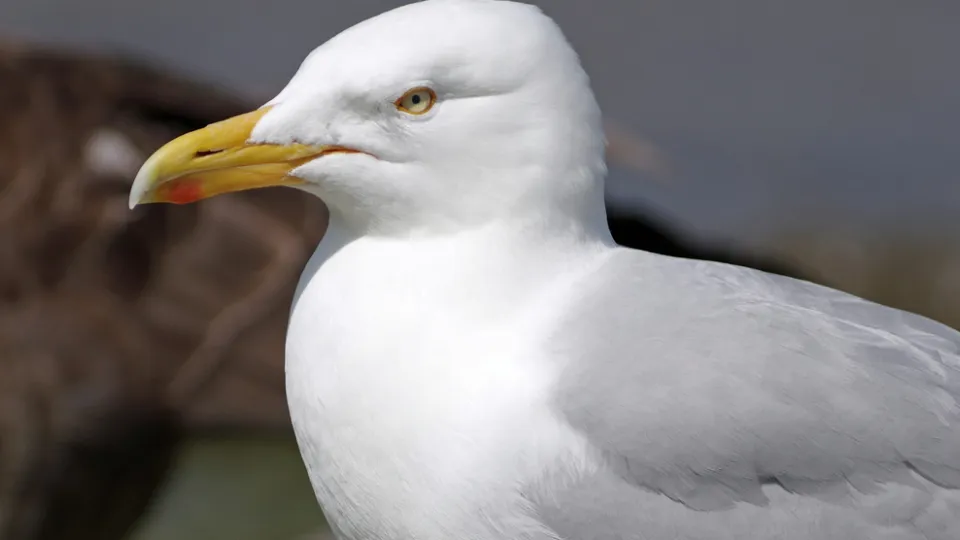
Herring gull
The herring gull is the typical 'seagull' of our seaside resorts, though our coastal populations have declined in recent decades.

The herring gull is the typical 'seagull' of our seaside resorts, though our coastal populations have declined in recent decades.
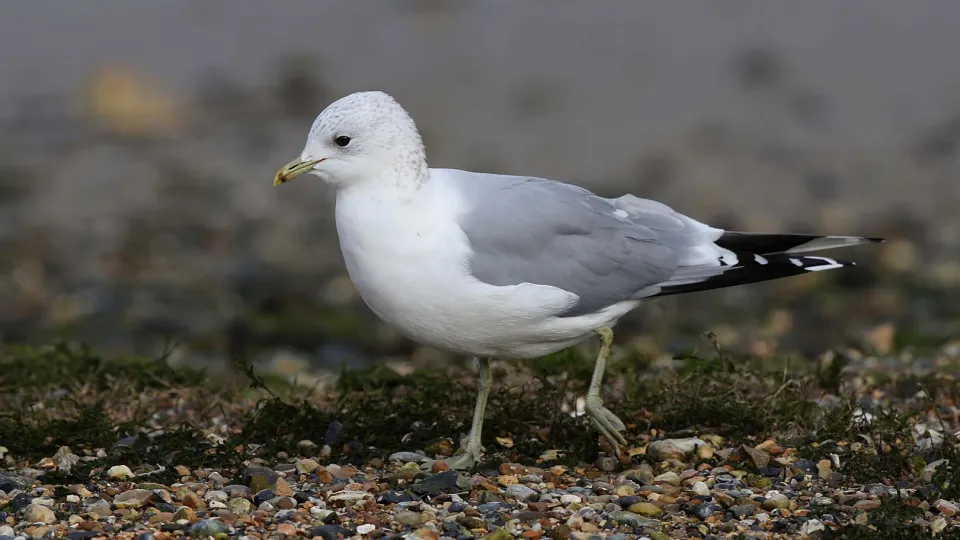
Despite its name, the common gull is not as common as some of our other gulls. It can be spotted breeding at the coast, but is also partial to sports fields, landfill sites and housing estates in winter.
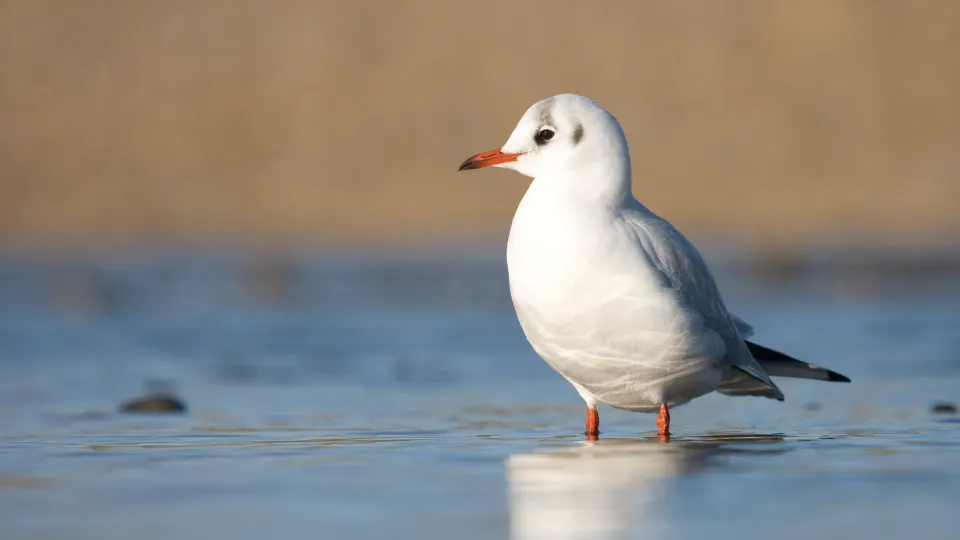
The black-headed gull is actually a chocolate-brown headed gull! And for much of the year, its head even turns white. Look out for it in large, noisy flocks on a variety of habitats.
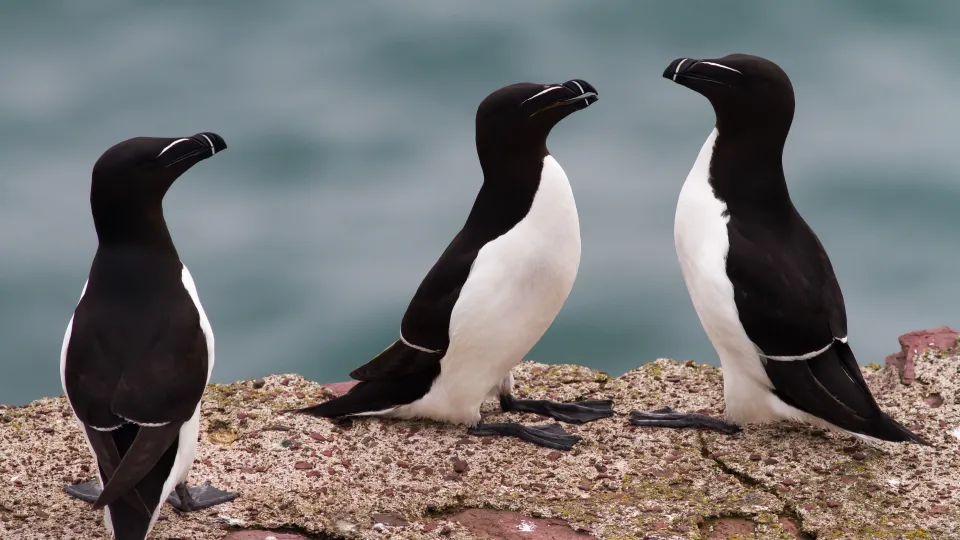
The razorbill has a characteristically thick, black bill, with a white stripe across it. It nests with other seabirds, such as guillemots, but prefers the lower ledges and rocky bottoms of cliffs and deep ravines.
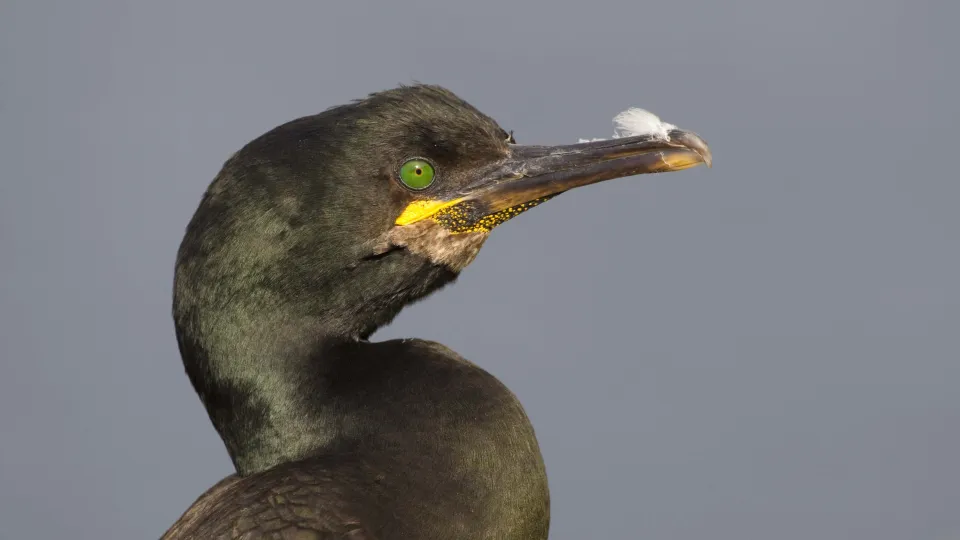
Shag' is a very old name that means 'tufted' and refers to the small crest that this bird sports. Look out for it in spring and summer either diving for fish from the surface of the sea or nesting on coastal cliffs.
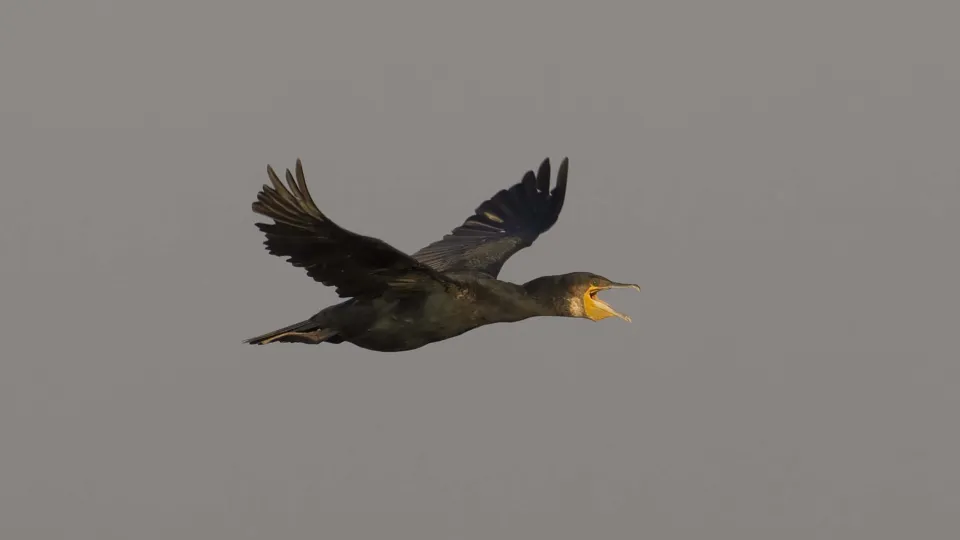
The cormorant is an excellent fisher. It is most easily spotted when it is perched, stretching its wings out in the sun to dry after a dive. The UK holds internationally important wintering numbers of cormorant.
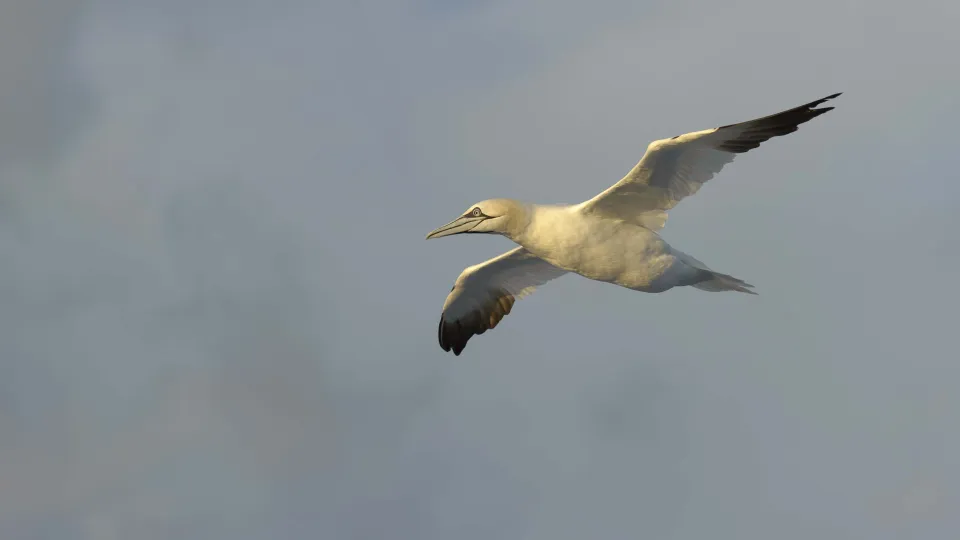
Famed for its super-fast fishing dives into the sea, the northern gannet (or gannet) is a distinctive white bird with a yellow head and black wingtips. It nests in large, noisy, smelly colonies on cliffs around our coasts.
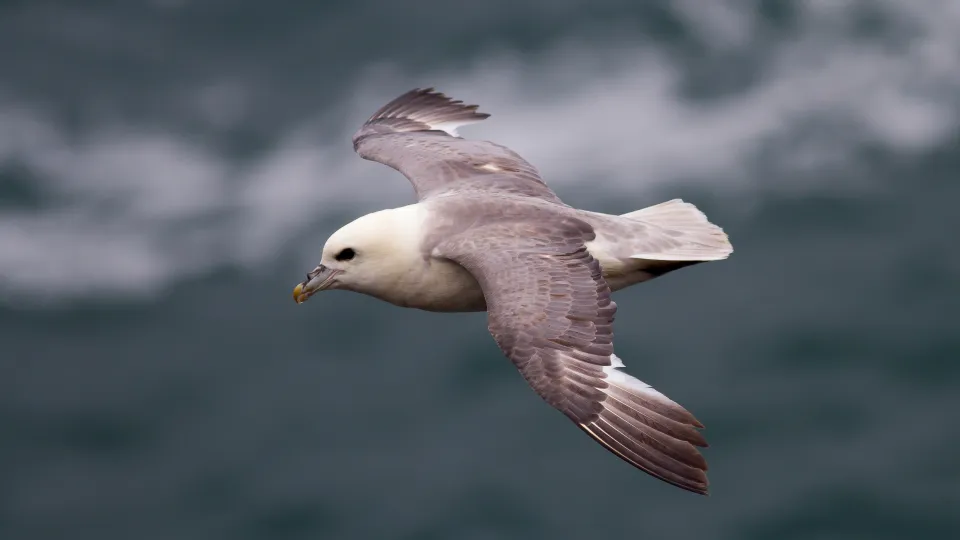
Related to the massive albatross, the fulmar is a gull-like bird that nests on rocky cliff edges. Don't get too close, though - it spits a foul-smelling oil at intruders.
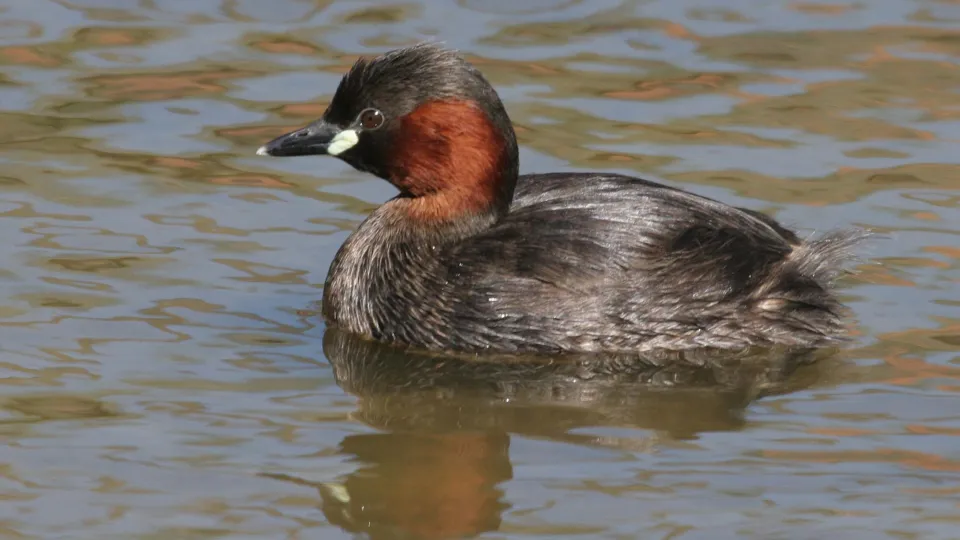
The little grebe is a fantastic diver, but to help it swim underwater, its feet are placed towards the back of its body, making it rather clumsy on land. It only really comes ashore to breed.
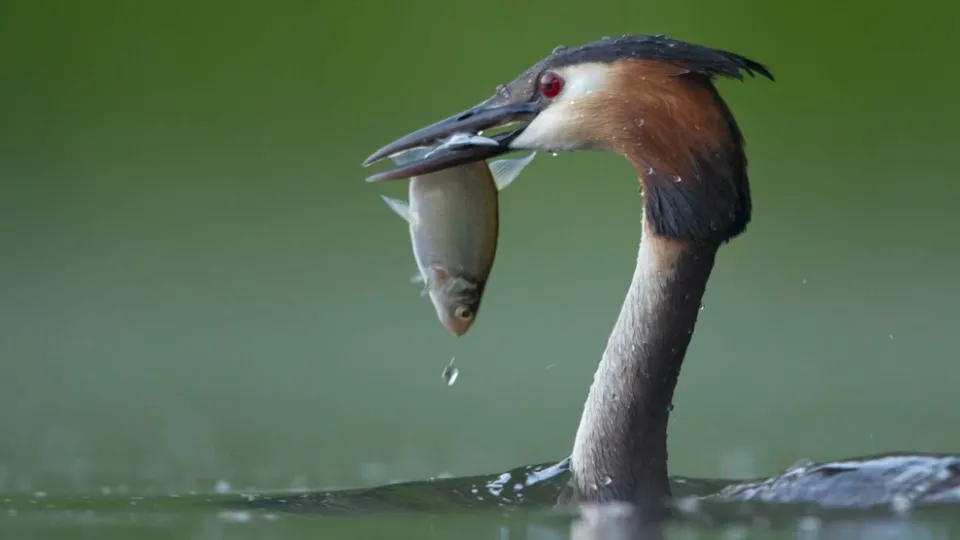
The graceful great crested grebe is a familiar sight on our lakes and reservoirs, and is well-known for its elaborate courtship dance, during which it rises vertically out of the water and shakes its head.